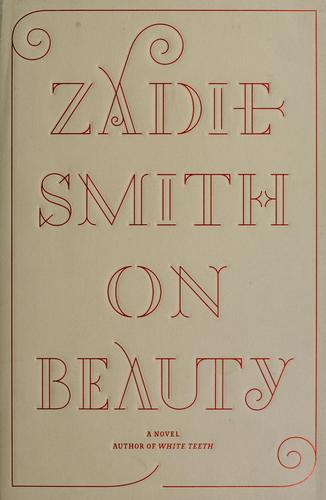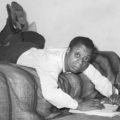 At the moment of her own greatest emotional commitment she intervened in the most successful marriage she knew. And it was true: sitting behind her desk, examining this abandoned, rudderless man, she had felt perversely vindicated. Seeing him like that had meant she was right, after all, about academics. (And shouldn’t she know? She’d married three of them.) They had no idea what the hell they were doing. How had no way of dealing with this new reality. He was unequal to the task of squaring his sense of himself with what he had done. It was not rational, and, therefore, he could not comprehend it. For Claire, their affair was only confirmation of what she knew of the darkest parts of herself. For Howard, it was clearly revelation.
At the moment of her own greatest emotional commitment she intervened in the most successful marriage she knew. And it was true: sitting behind her desk, examining this abandoned, rudderless man, she had felt perversely vindicated. Seeing him like that had meant she was right, after all, about academics. (And shouldn’t she know? She’d married three of them.) They had no idea what the hell they were doing. How had no way of dealing with this new reality. He was unequal to the task of squaring his sense of himself with what he had done. It was not rational, and, therefore, he could not comprehend it. For Claire, their affair was only confirmation of what she knew of the darkest parts of herself. For Howard, it was clearly revelation.
It was horrendous thinking about him, having him refracted through Zora’s features. Now that Claire’s part in Howard’s indiscretion was no longer a secret, the guilt had moved from private indulgence to public punishment. Not that she minded the shame; she had been the mistress on other occasions and had not been especially cowed by it then. But this time it was infuriating and humiliating to be punished for something she’d done with so little desire or will. She was a woman still controlled by the traumas of her girlhood. It made more sense to put her three-year old self in the dock. As Dr Byford explained, she was really the victim of a vicious, peculiarly female psychological disorder: she felt one thing and did another. She was a stranger to herself.
And were they still like that, she wondered – these new girls, this new generation? Did they still feel one thing and do another? Did they still only want to be wanted? Were they still objects of desire instead of – as Howard might put it – desiring subjects? Thinking of the girls sat cross-legged with her in this basement, of Zora in front of her, of the angry girls who shouted their poetry from the stage – no, she could see no serious change. Still starving themselves, still reading women’s magazines that explicitly hate women, still cutting themselves with little knives in places they think can’t be seen, still faking their orgasms with men they dislike, still lying to everybody about everything. Strangely, Kiki Belsey had always struck Claire as a wonderful anomaly in exactly this sense. Claire remembered when Howard first met his wife, back when Kiki was a nursing student in New York. At that time her beauty was awesome, almost unspeakable, but more than this she radiated an essential female nature Claire had already imagined in her poetry – natural, honest, powerful, unmediated, full of something like genuine desire. A goddess of the everyday. She was not one of Howard’s intellectual set, but she was actively political, and her beliefs were genuine and well expressed. Womanish, as they said back then, not feminine. For Clare, Kiki was not only evidence of Howard’s humanity but proof that a new kind of woman had come into the world as promised, as advertised. Without ever becoming intimates, she felt she could honestly say that she and Kiki had always been fond of each other. Never had she resented Kiki or wished her ill. And here Claire emerged out of herself,refocused on Zora’s features so that hers was again a sovereign face and not a blur of colour and personal thoughts. It was not possible to make the last leap – to consider what it was Kiki now thought of Claire. To do that was to become subhuman before yourself, the person cast out beyond pity, a Caliban. Nobody can cast themselves out.







